Israel-Hamas war: Qantas changes non-stop London flight to avoid Iranian airspace as Israel braces for attack
Qantas has joined other international airlines in changing flightpaths and even cancelling services in response to the “real” threat of an Iranian attack on Israel. Warning: Graphic
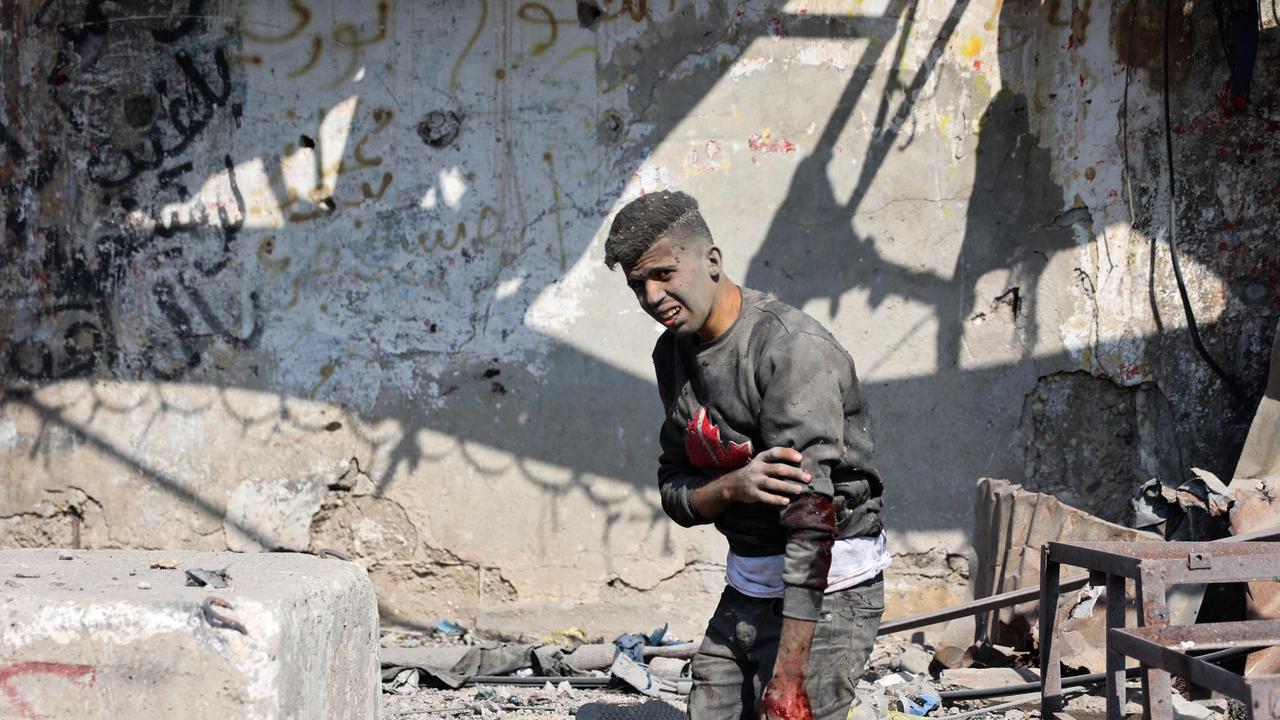
World
Don't miss out on the headlines from World. Followed categories will be added to My News.
Australia’s only non-stop flight from to London has been temporarily paused by Qantas to avoid Iranian airspace, as tension builds in the Middle East over an attack on Israel by Tehran.
The carrier has re-routed the Perth-London flight known as QF9 to include a stopover in Singapore.
A Qantas spokesperson said that while this route was being used, the flight would be known as QF209.
The return flight QF10 (London-Perth) will continue to operate direct to Perth with a full load. This flight path has also been adjusted but it could fly direct due to prevailing winds, Qantas said.
“We’re temporarily adjusting the flight paths for our flights between Perth and London due to the situation in parts of the Middle East,” the carrier’s spokesperson said.
“We’ll reach out to customers directly if there’s any change to their booking.”
These are the only Qantas flights affected. All other Qantas flights, including those to and from London remain as scheduled.
However it is understood Qantas continues to monitor flight paths daily and makes adjustments as necessary. Weather and security are some of the reasons for adjustments.
Other international airlines have also responded to threat of a Tehran attack on Israel.
German airline Lufthansa said its planes would no longer use Iranian airspace as it extended a suspension on flights to and from Tehran amid soaring Middle East tensions.
“Due to the current situation, Lufthansa is suspending its flights to and from Tehran up to and including Thursday, 18 April,” a company spokesperson said.
“The airline is no longer using Iranian airspace”
Lufthansa’s subsidiary Austrian Airlines followed suit.
Flights to the Iranian capital have been suspended since April 6. In a statement, Austrian Airlines cited “the current situation in the Middle East”.
“For Austrian Airlines, the safety of its passengers and crews has top priority. The situation in the Middle East is being evaluated on an ongoing basis. To this end, Austrian is in close contact with the authorities”.
The move comes after Iran blamed Israel for a strike in Syria this month that killed two Iranian generals. It has threatened reprisals, while Israel has been stepping up strikes against Iran-linked targets in Syria since the war in the Gaza Strip began in October.
FOLLOW UPDATES BELOW:
IRAN COULD STRIKE ISRAEL WITH ‘100 DRONES AND MISSILES’
Israel remains on high alert for a possible direct from attack that military sources say could come as soon as Saturday (AEST).
Iran’s threats of reprisals against Israel remain “real”, the White House said on Friday, local time.
“We still deem the potential threat by Iran here to be real, to be viable,” National Security Council spokesman John Kirby said.
The attack targeting Israel Defense Forces positions could include more than 100 drones and dozens of missiles, two US officials told US media.
It would be difficult for Israel to defend itself against such a large bombardment, the officials explained — though they also suggested that Iran could launch a smaller-scale attack to avoid escalating tensions much further.
“The strike plans are in front of the Supreme Leader and he is still weighing the political risk,” an adviser to Iran’s Ayatollah Ali Khamenei said earlier.
Mr Kirby would not confirm reports that US officials considered an Iranian attack “imminent” or comment on whether the United States would help shoot down any Iranian missiles fired at Israel.
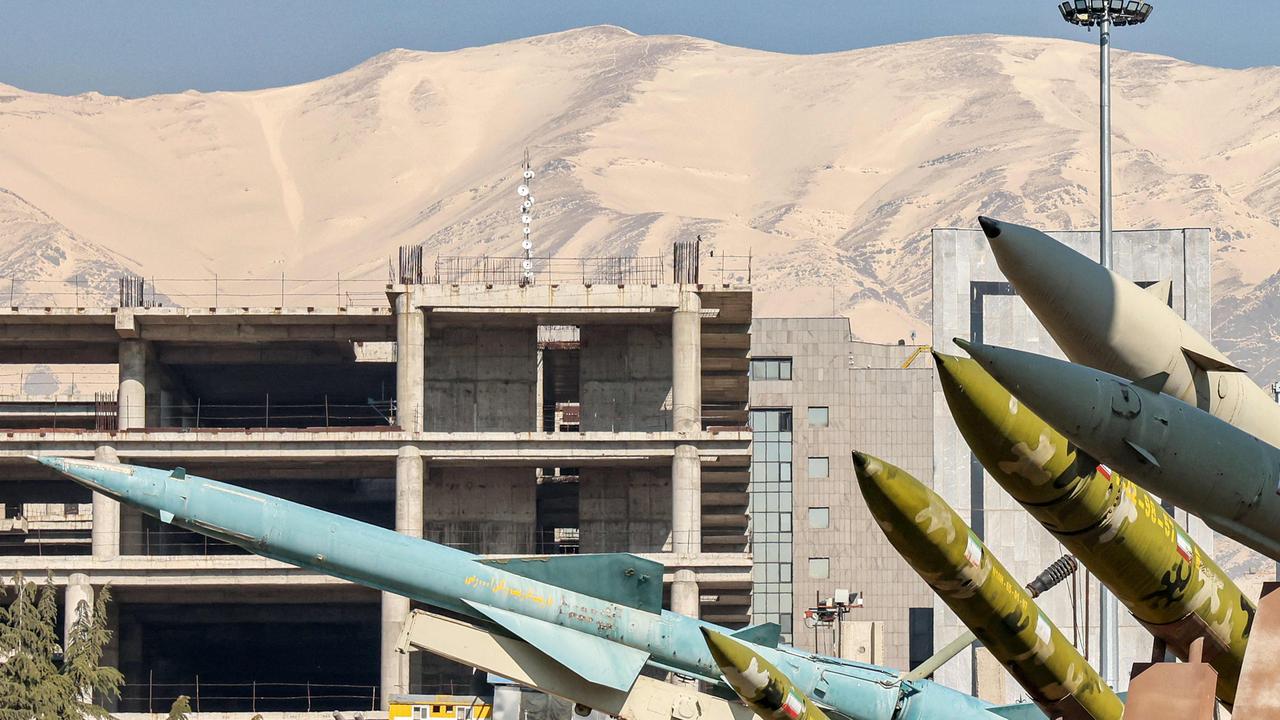
“I would just say that we’re watching this very, very closely,” he said, adding that Washington would make sure the Israelis “have what they need and that they’re able to defend themselves.”
The US would also look at its own force posture in the region where it has thousands of troops “to make sure that we’re properly prepared”.
US President Joe Biden on Wednesday warned that Iran is “threatening to launch a significant attack on Israel.” He pledged “iron-clad” support for Washington’s top regional ally despite diplomatic tensions over Israel’s military conduct in Gaza.
According to the New York Post, some form of retaliation for the Israeli strike on April 1 that killed seven Iranian military officers is expected imminently, the US experts cautioned.
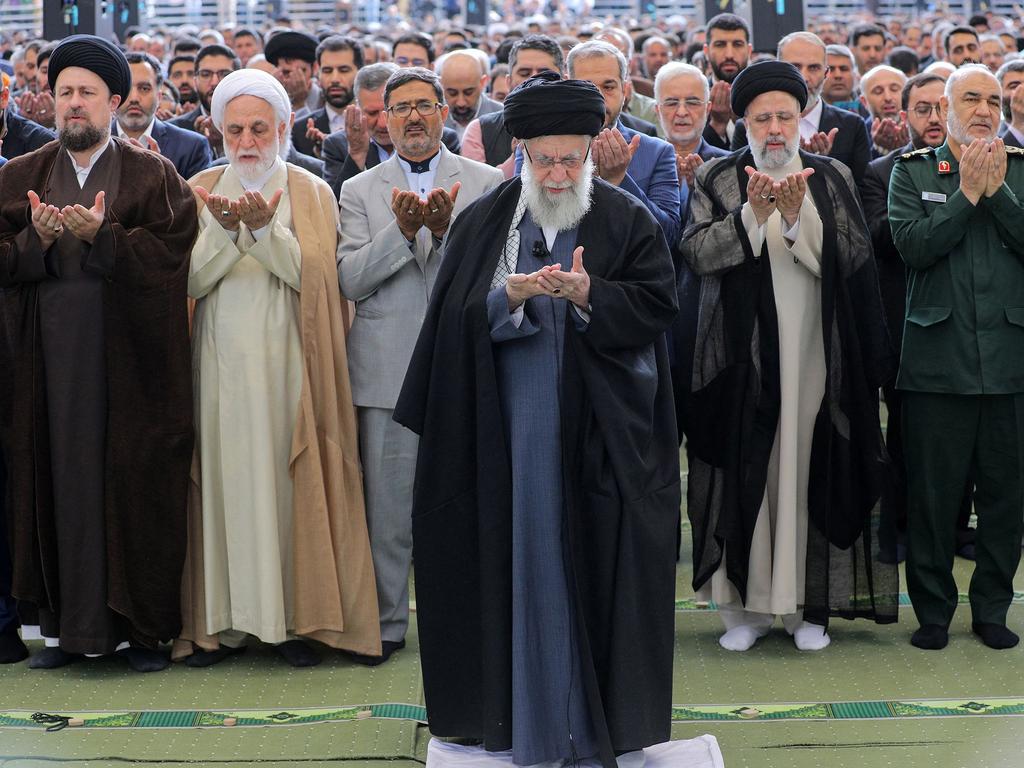
Tehran has not commented officially on how or when it will strike, though the ambiguity is only stoking fears that Israel’s war with Iran-backed Hamas in the Gaza Strip could become a wider regional conflict, US media reported.
Earlier this week, the US State Department warned Americans in Israel not to travel outside major cities, which are better protected by the Iron Dome missile defence system.
“Whoever harms us, we will harm them,” Israeli Prime Minister Benjamin Netanyahu insisted Thursday during a visit with troops at an IDF air base.
“We are prepared … both defensively and offensively,” he said.
But Sima Shine, a security expert and former Mossad official, told US media that the latest scenario leaves her the “most worried” she had been for several months.
Anxiety over a regional war is probably high “on both sides, Israel and in Iran,” she added.
“They will try to do it on the military or some military asset,” Shine said of Iran’s potential targets on Israeli soil.
“But the question will be the damage. If there would be many injured people, killed or injured … I think it has the potential for a huge escalation,” she warned.
Shine also emphasised that she does not believe that either side truly wants a regional conflict.
The real test for Iran, she said, could be trying to deliver a payback attack in Syria in a way that would not further complicate the region.
Israel, Shine said, could also opt for restraint when its responds to whatever Iran has planned.
US officials are “really trying to avoid war,” Joint Chiefs Chairman Gen. Charles Q Brown Jr. told US media on Friday local time.
“This is part of the dialogue that I have with my counterparts within the region, to include the Israeli chief of defence, who I talked to yesterday,” he said of the US’ efforts to contain the situation.
American forces, he added, were “doing things not only to prevent a war, but at the same time, one of my primary things is to make sure all the forces in the region are protected.”
AUSTRALIAN AID WORKER UNDER FIRE IN GAZA
The Australian Government is “deeply concerned” and has stressed “aid workers must be protected” during wartime, after an Australian humanitarian worker said she was lucky to be alive after being shot at during an attempted aid delivery to northern Gaza.
UNICEF communications specialist Tess Ingram was in one of three cars on a co-ordinated mission with the UNRWA on Tuesday around 10.30am local time when the convoy came under fire at a designated holding point before the Wadi Gaza checkpoint.
It comes less than two weeks after an Israeli air strike killed seven aid workers including an Australian woman.
The UNICEF group was trying to deliver fuel to water wells in the north, and lifesaving nutrition and medical supplies to Kamal Adwan Hospital, where children dying of malnutrition have been admitted.
“We didn’t see why but all of a sudden we heard the gunfire and saw it was coming from the direction of the checkpoint and there were civilians running away from the location,” Ms Ingram, 33, said.
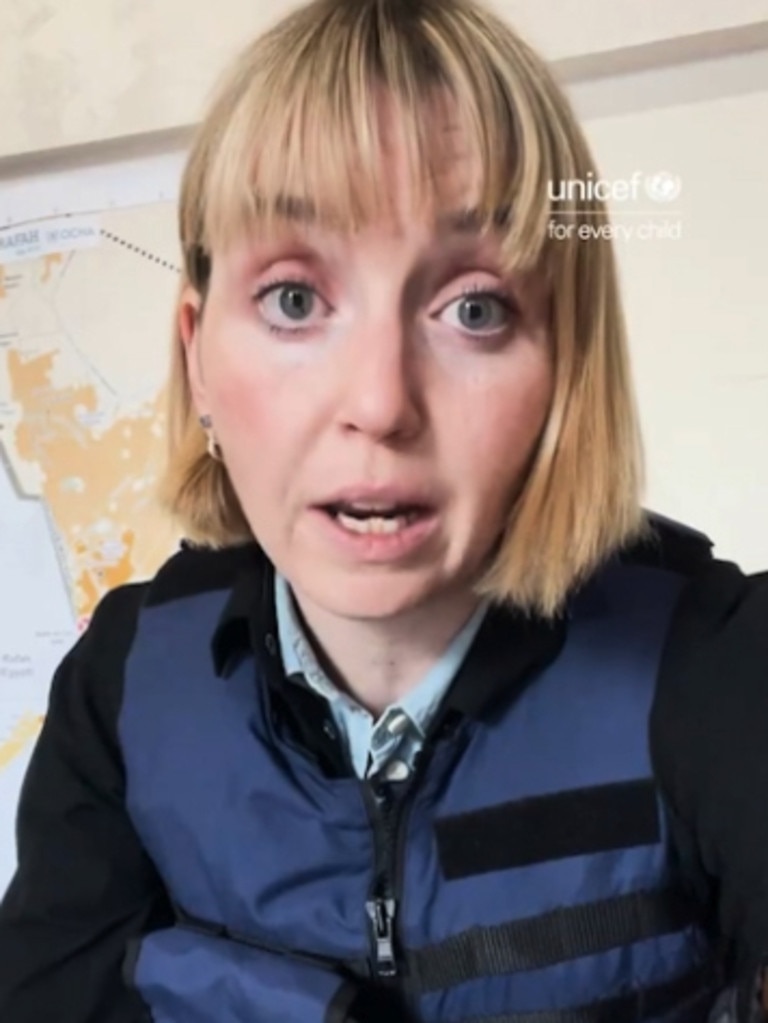
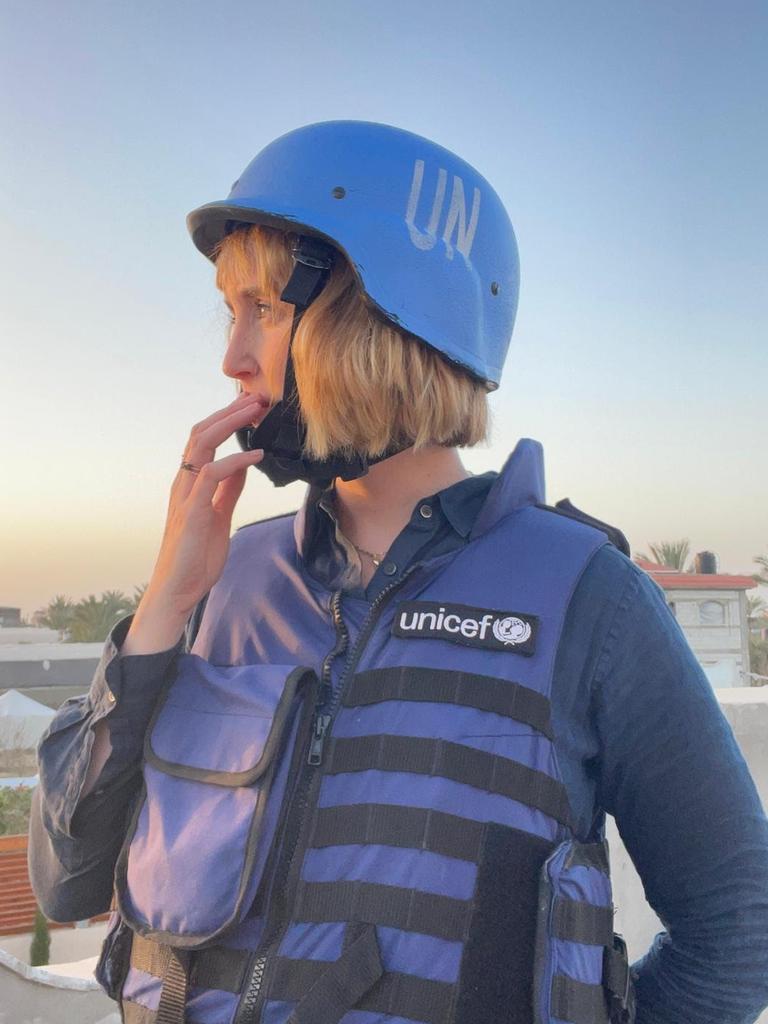
“We had some colleagues outside of the car checking a mechanical problem with the nutrition truck when the fire broke out, and they had to run back to our armoured vehicle.
“I saw a bullet, I saw it as it kind of flew towards me, it hit my window and the other hit my door below the window, and the third hit the bonnet of my car.”
Everyone escaped unharmed on this occasion but Ms Ingram said this has been the most serious incident UNICEF has been involved in amid the Israel-Hamas war so far.
“This is a very serious incident because our co-ordinates were known and we were instructed to wait; our presence was known,” the Perth-raised aid worker said.

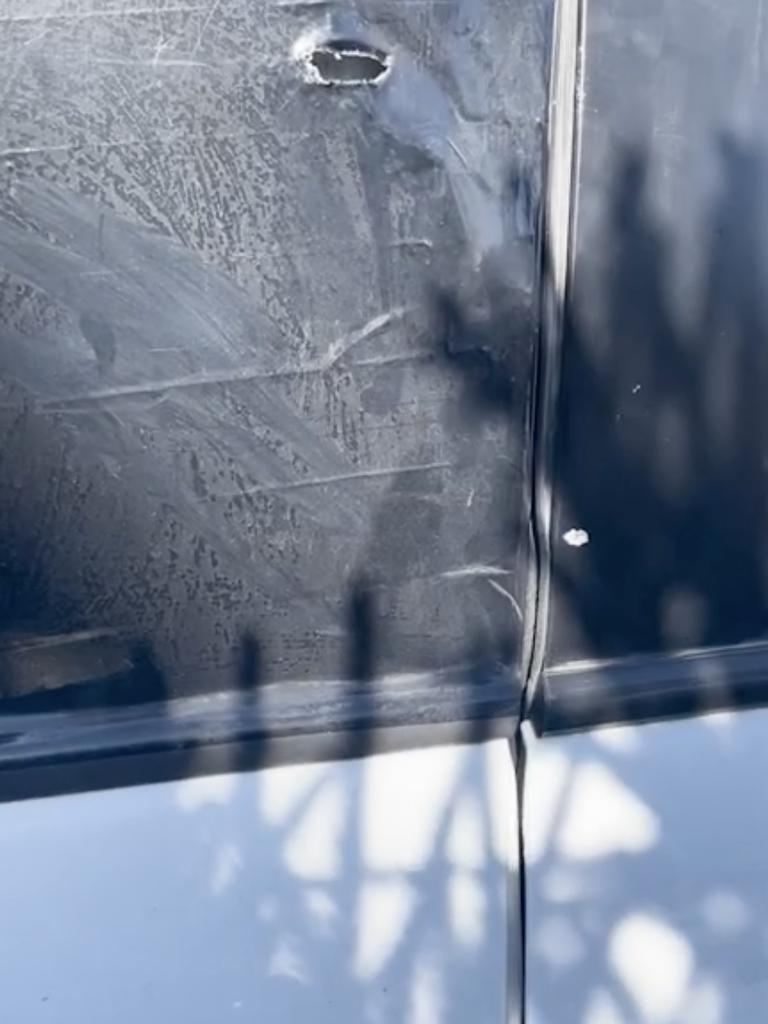
The Department of Foreign Affairs and Trade told News Corp: “Australia is deeply concerned by these reports, and is urgently seeking more information”.
“Civilians, journalists and aid workers must be protected. Australia has consistently called for this,” an Australian Government spokesman said.
“Wartime does not remove the responsibility for observing international law. Aid workers must be protected.”

UNICEF has raised the matter with the Israeli authorities but have not heard back, she said.
“This is just another example of how unsafe it is for humanitarian aid workers and how, you know, missions like these are made impossible,” Ms Ingram said.
“Safety is not guaranteed even when we take all the required steps. Like we saw with the tragic World Central Kitchen incident. This is just another example of an incident like that.”
Ms Ingram said aid delivery was also hampered by long delays at checkpoints.
“After the incident, we wanted to continue the mission, we have critical supplies, but we waited at least another three hours and it got to the point we were no longer able to go ahead because we knew we wouldn’t have time to make the mission,” she said.
“The delays often prevent us from doing this work. We are going to attempt this again. I can’t speculate on their motive but it happens all the time”.
Melbourne aid worker Lalzawmi ‘Zomi’ Frankcom was among the seven aid workers killed by an Israel Defense Force missile on April 1.
Israel’s armed forces chief Herzi Halevi called the attack a “grave mistake”, which he blamed on night-time “misidentification”, adding in a video message that “we are sorry for the unintentional harm to the members of WCK”.
The IDF said it had dismissed two officers and reprimanded three others for their roles in the WCK deaths, saying they had mishandled critical information and violated the army’s rules of engagement.
ISRAEL ON HIGH ALERT FOR IRAN ATTACK
Israel remained on high alert after its arch foe Iran threatened reprisals over a strike in Syria this month that killed two Iranian generals, and as the war against Hamas ground on in Gaza.
Days after Israel strengthened its air defences and paused leave for combat units, the United States also warned of the risk of an attack by Iran or its allied groups at a time Middle East tensions have soared.
On Wednesday, US President Joe Biden promised that Israel would receive “iron-clad” US support amid fears that Tehran could launch reprisals for an attack that killed senior Iranians.
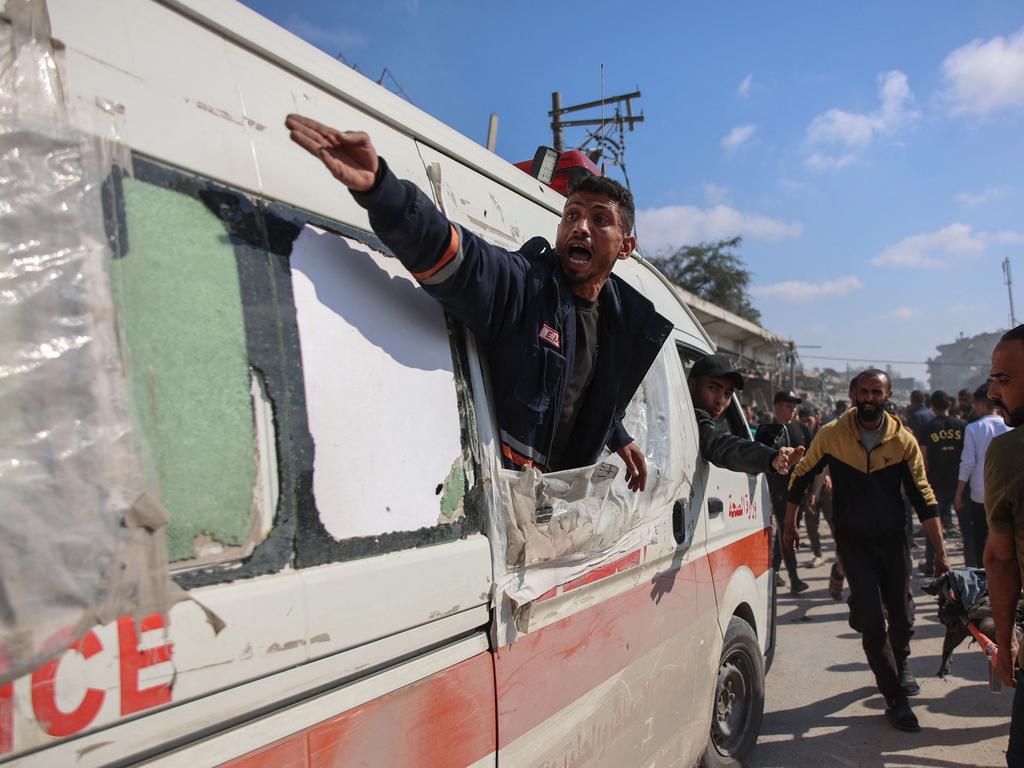
Mr Biden warned that Iran is threatening to launch a “significant attack” after Israel struck the Iranian consulate in Syria 10 days ago.
“We’re going to do all we can to protect Israel’s security,” he said.
Earlier this week, Iran’s leader said the Israeli attack in Damascus was equivalent to an attack on Iran itself.
“When they attacked our consulate area, it was like they attacked our territory,” Ayatollah Ali Khamenei said in a televised speech.
He warned that Israel “must be punished and will be punished”, days after one of his advisers said Israeli embassies are “no longer safe”.
Israeli Foreign Minister Israel Katz swiftly replied on social media site X that “if Iran attacks from its territory, Israel will respond and attack Iran”.
The Axios news site reported that US Central Command chief Michael Kurilla was to visit Israel to discuss the situation with Defence Minister Yoav Gallant.
During a visit to an air base in central Israel, the prime minister spoke of “challenging times” on multiple fronts.
“We are in the middle of the war in Gaza which continues in full force … but we are also preparing for scenarios of challenges from other arenas,” Mr Netanyahu said in comments released by his office.
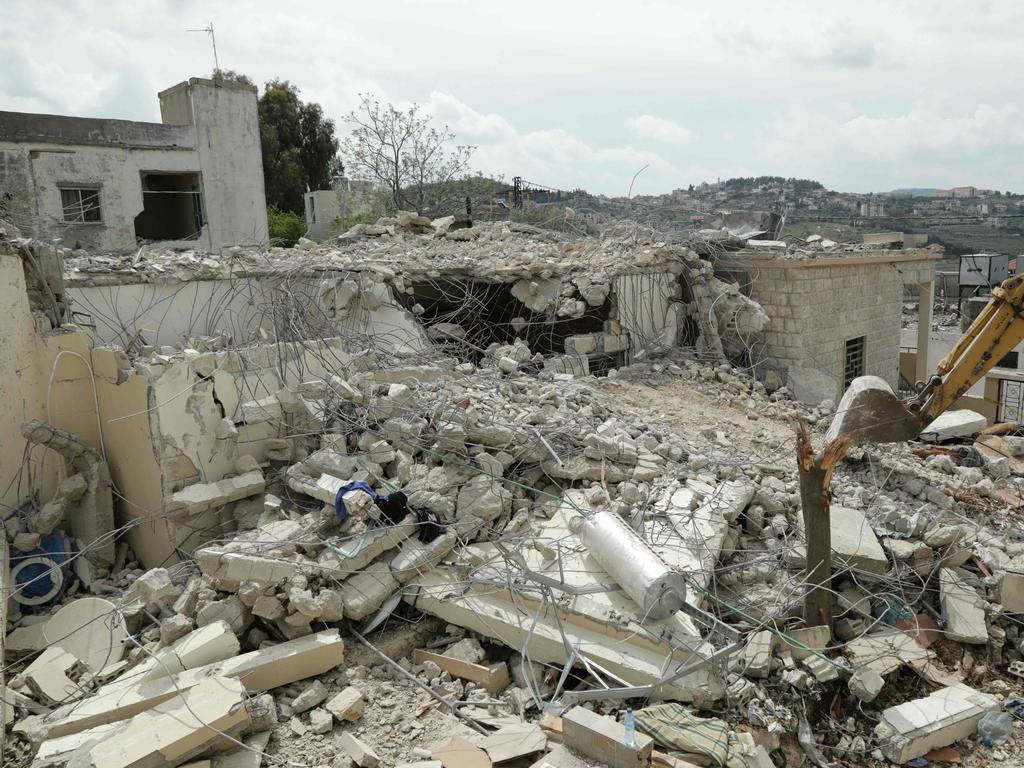
Moscow called on both Iran and Israel to exercise restraint, after earlier warning Russians to refrain from travelling to Israel, Lebanon and the Palestinian territories.
German Foreign Minister Annalena Baerbock on X, formerly Twitter, urged “maximum restraint”, and Lufthansa said it had extended a temporary suspension of Iran flights until Saturday.
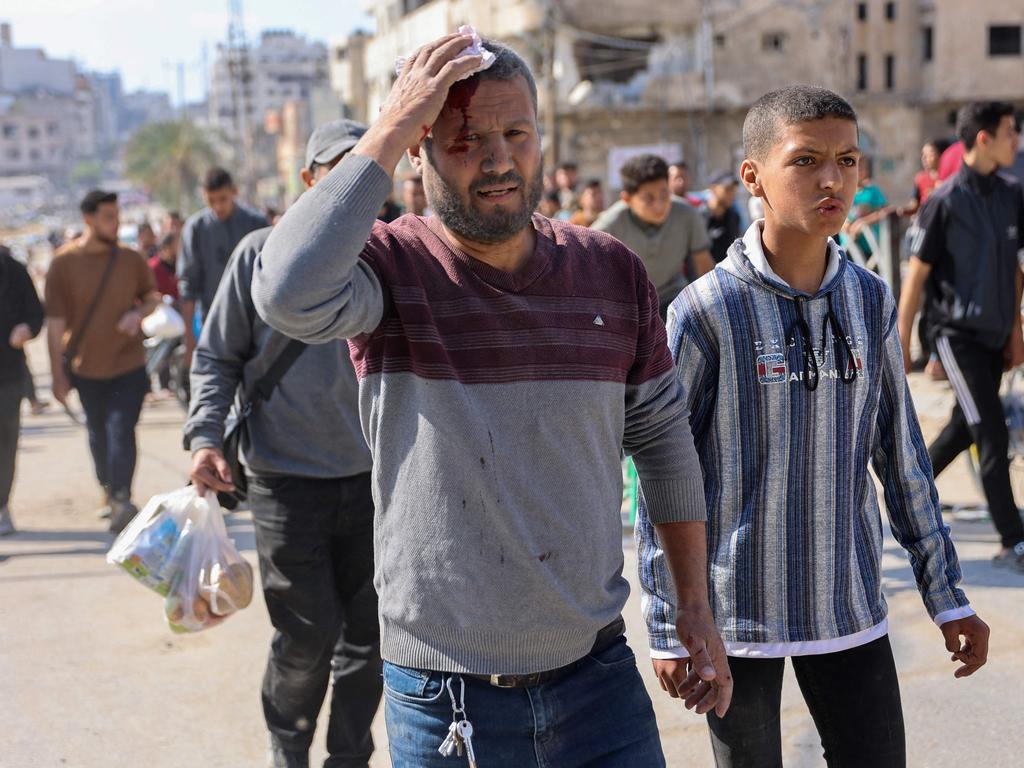
Israel and the United States have long faced off against Iran and its so-called “Axis of Resistance” allies based in Lebanon, Iraq, Syria and Yemen.
Regional tensions have been stoked by the Gaza war which broke out after Hamas launched their October 7 attack against Israel, which left 1170 people dead, mostly civilians, according to Israeli figures.
Palestinian militants also took about 250 hostages, 129 of whom remain in Gaza, including 34 the Israeli army says are dead.
Iran has said it had no advance knowledge of October’s attack but has hailed the assault against its decades-old enemy.
Israel’s retaliatory offensive has killed at least 33,545 people in Gaza, mostly women and children, according to the Hamas-run territory’s health ministry.
The Israeli military reported overnight operations in central Gaza which had also involved its navy and air force “to eliminate terrorist operatives”.
– with AFP
More Coverage
Originally published as Israel-Hamas war: Qantas changes non-stop London flight to avoid Iranian airspace as Israel braces for attack








